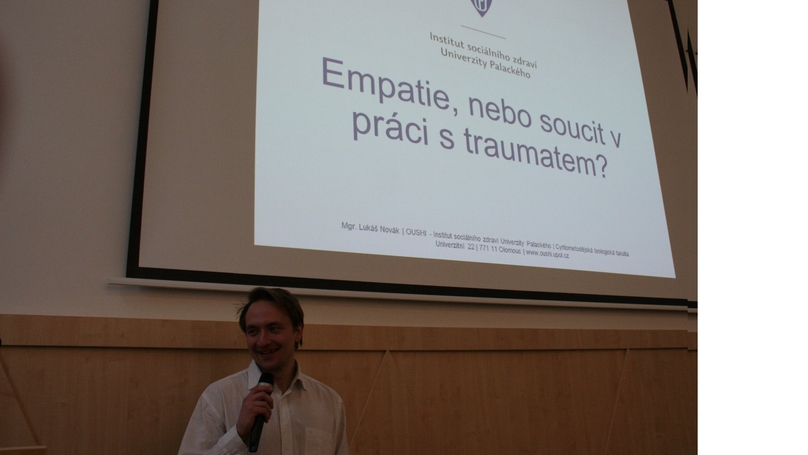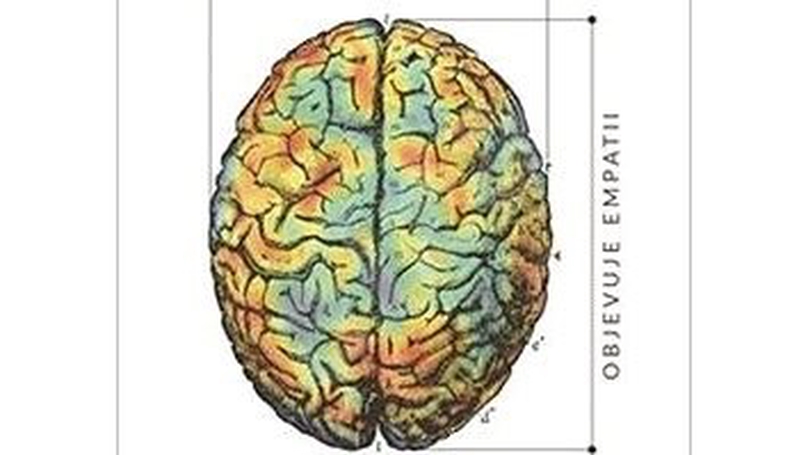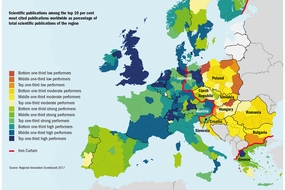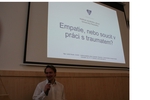Biography
Lukas Novak, Ph.D., is an Assistant Professor at the Social Health Institute of Palacký University in Olomouc. His research focuses on topics from psychometrics, digital mental health and programming. Currently, he is interested in developing machine learning models/AI models for the early and accurate forecasting of mental health issues.
- Psychometrics
- Digital mental health
- Quantitative methodology
-
Ph.D. in Health Sciences, 2025
University of Groningen
-
Ph.D. in Social Health, 2025
Palacky University Olomouc
-
M.A. in Psychology, 2020
Skills
50%
50%
50%
Experience
Responsibilities include:
- Data analysis
- Academic writing
Accomplishments
Recent Posts
Featured Publications

There is growing research on compassion in many fields of social science. However, there are no standardised instruments for measuring compassion in the Czech environment. Therefore, the aim of this study was to psychometrically evaluate the Santa Clara Brief Compassion Scale (SCBCS) in Czech Republic. Sample of 572 Czech respondents (mean age 28.9 years; 36.7% men) participated in the study. Compassion, spirituality and religiosity, together with basic socio-demographic information, were measured. The non-parametric comparison of different sociodemographic groups showed a higher level of compassion among women, among respondents living in marriage, and among religious respondents. The Confirmatory Factor Analysis showed a good fit of a one-factor model with the data, with χ² (5) = 58.9; p < .001; TLI=.98; CFI=.99; SRMR=.058. The scale has a good internal consistency with Cronbach’s α=.84 and McDonald’s ω = .89. The Czech version of the SCBCS is a reliable measure for assessing compassion.

(In Czech) Empatie je řadou autorů vnímána jako schopnost, kterou by měli ve vysoké míře disponovat lidé poskytující zdravotní péči. U zdravotnických pracovníků, včetně psychoterapeutů, se též doporučuje tuto schopnost systematicky rozvíjet, a to již před nástupem do zaměstnání. Existují však studie, jež uvádějí, že empatie může jít ruku v ruce s negativními zdravotními konsekvencemi pro empatického člověka. V příspěvku se pokusím předložit důkazy a vyargumentovat, proč v psychoterapii obecně – stejně jako v práci s traumatem – může být empatie neužitečná ba dokonce škodlivá a proč bychom tedy tuto schopnost neměli u terapeutů kultivovat. V příspěvku se dále pokusím vyargumentovat, proč by u terapeutů měl být kultivován soucit namísto empatie. Oporou mi při tom budou závěry neurovědních studií.

The following publication offers a comprehensive and transdisciplinary view of empathy as social and individually psychological phenomenon. Apart from the complex summary of definitions based mainly on the concept of one of the most influential modern psychologists C. R. Rogers, the authors formulate also answers to following questions What impact can a lack of empathy during childhood have on the individual development? What benefits can arise from the development of empathy for the area of life contentment, interest about others or comprehension of their psychic state? Is there any connection between empathy and prosocial or altruistic behavior? What information brings the “invasion” of exactness and newest research technologies about the empathy or its evolution, heredity or sensitivity to social influences? What can be expected of the future research of empathy? The authors confront Rogers´ concept of empathy with newest findings especially from the field of neurosciences and experimental psychology whereas following implications to the area of psychotherapy, social praxis, ethics and spirituality. They search for the connection between the deficit of empathy and personality disorders, autism spectrum disorders, attention deficits or hyperactivity. The authors of this study believe that we should not resign to the development of empathy and leave it only to our intuition or “common sense”, especially in the area of interpersonal relationships, upbringing, education or health care. Therefore, in this text they pay attention to some methods successfully evolving the empathy.
Recent Publications
Contact
- lukasjirinovak@gmail.com
- +420 737823971
- 653/17 Kateřinská, Olomouc, Olomouc 779 00
- Enter Building 1
- Office hours: Based on previous email communication
- DM Me
- Skype Me
- Discuss on Forum
- orcid







